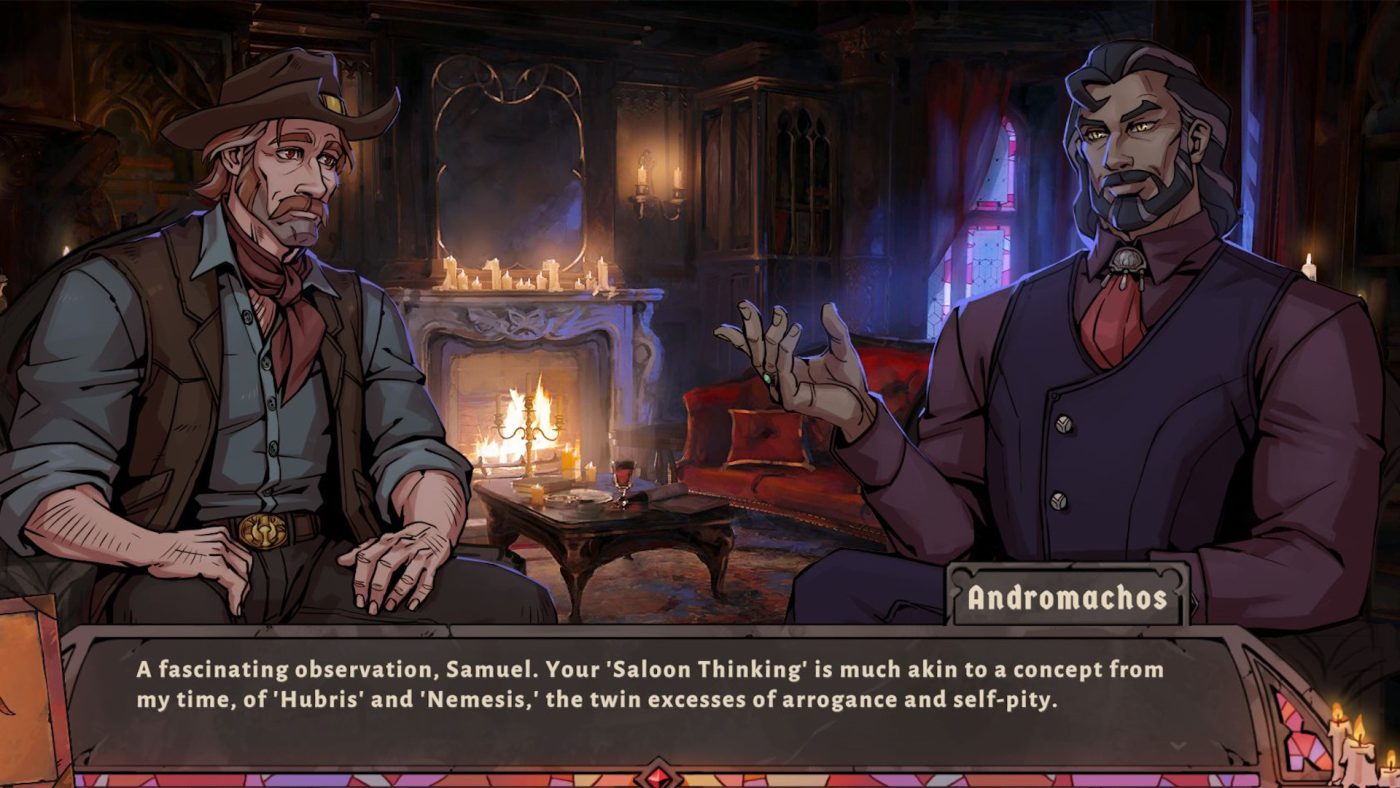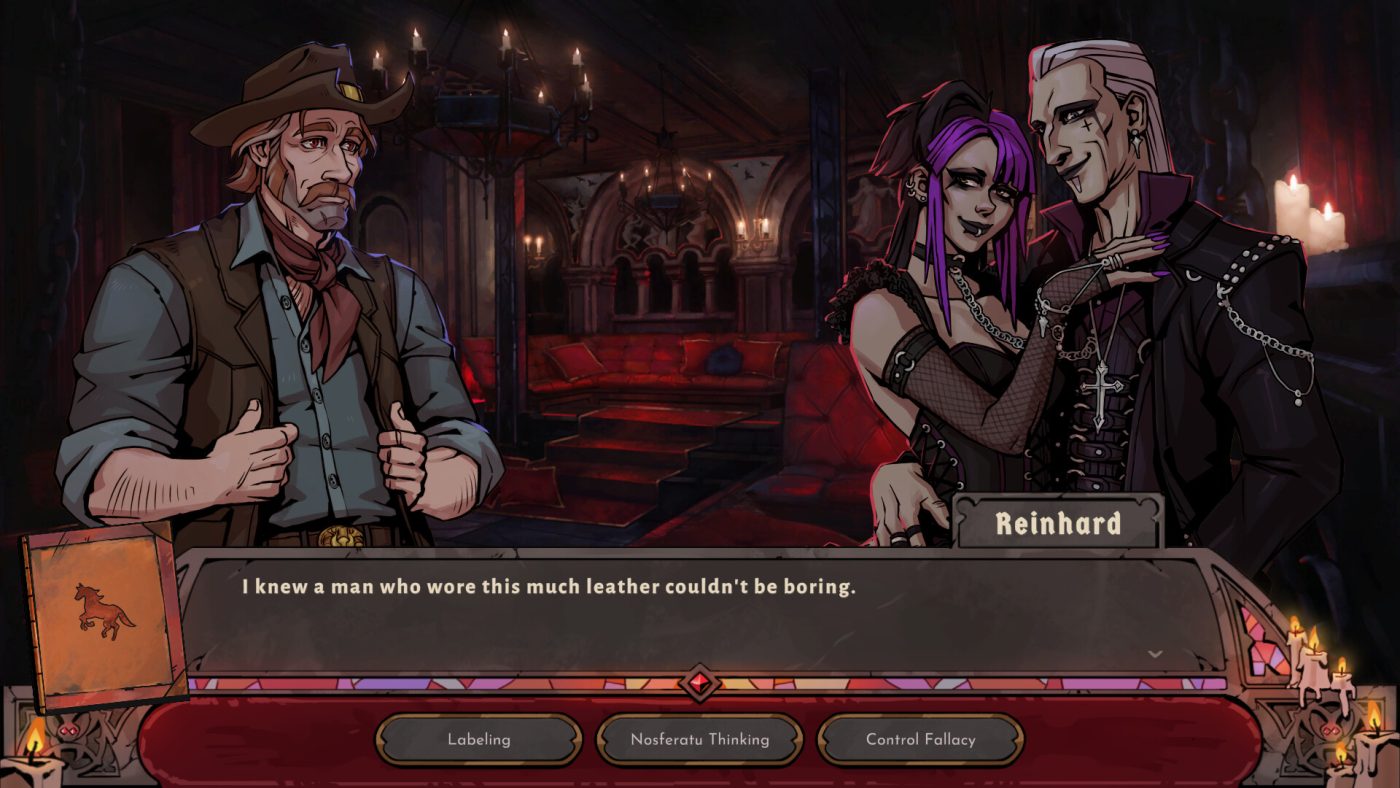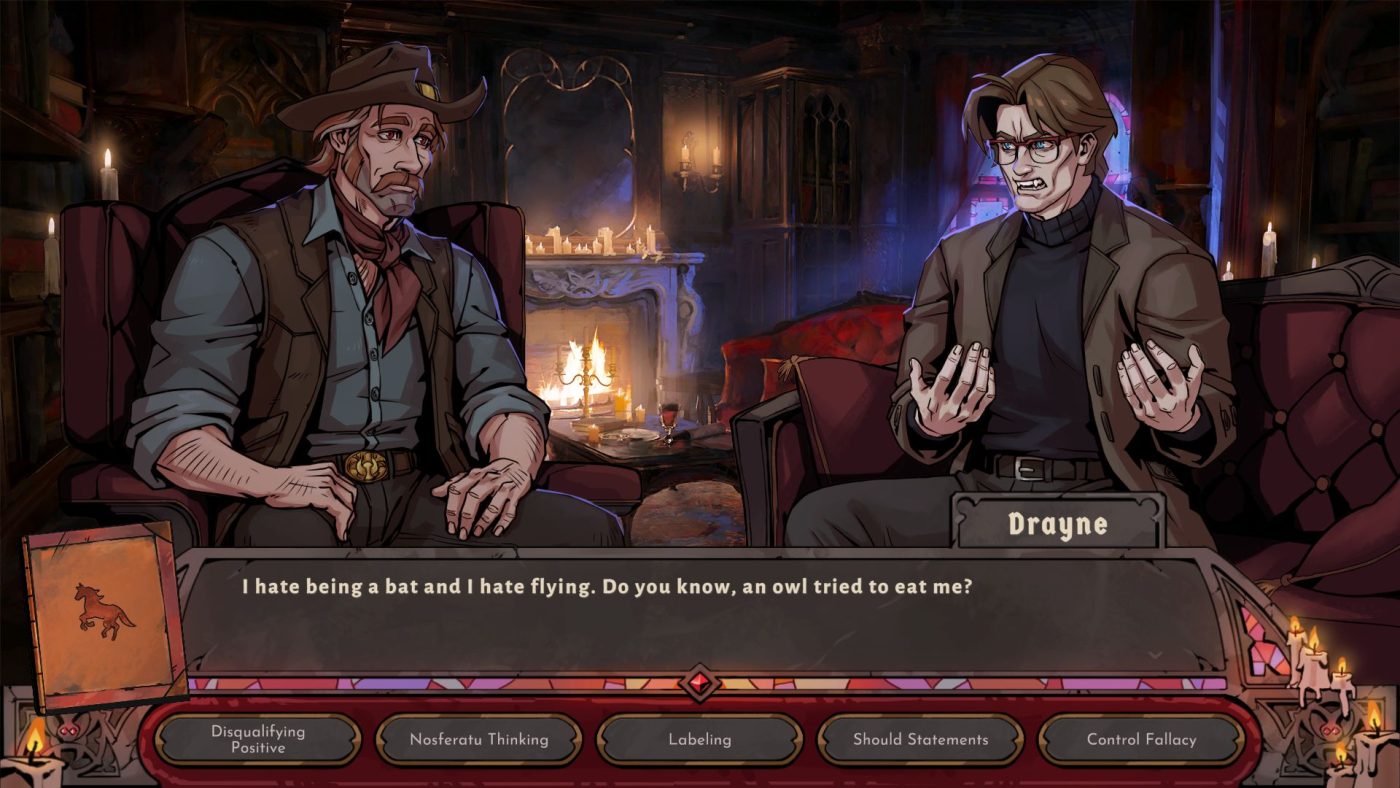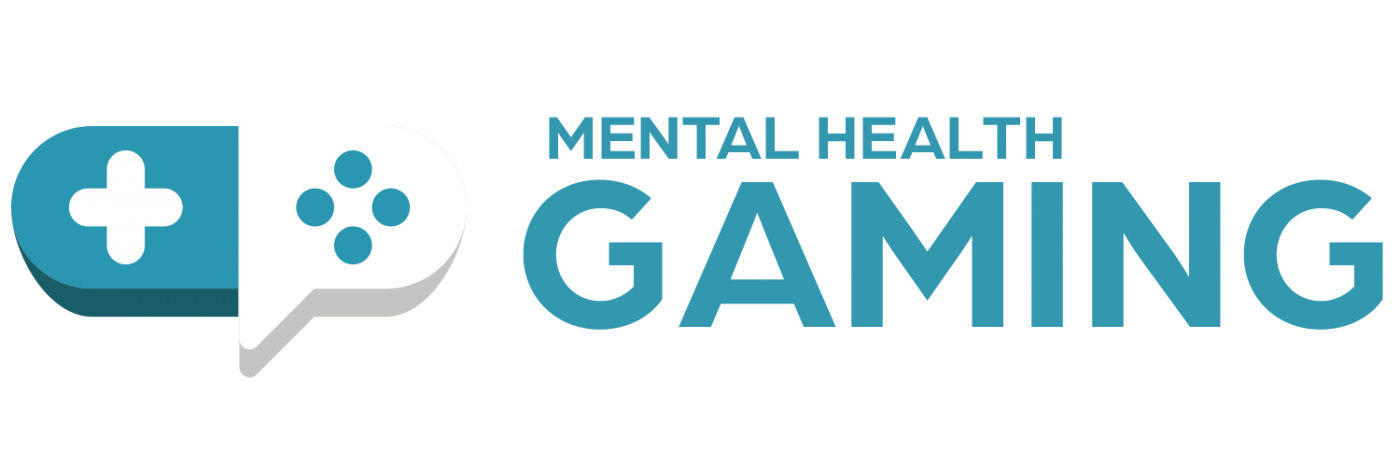Well, the creator of the game Vampire Therapist anyway. But how could I not do that title? Vampire Therapist is a visual novel where you, according to the description
Guide vampires through centuries of emotional baggage, decades of delusions and the odd bout of self-loathing with real cognitive behavioural therapy concepts and become a Vampire Therapist! Even vampires need a shoulder to cry on when a neck to bite just won’t do.
Steam Store Page
This interesting visual novel covers plenty of subjects, including a dive into mental health, so I spoke with the one person creator of the game Cyrus Nemati about thing.
Q1. Thank you for joining us. Please tell us a little about Vampire Therapist.
Thank you for chatting with me! I think there’s a lot of potential for mental health awareness in games that we’re just starting to tap. Vampire Therapist is a narrative-focused game about a reformed old West gangster vampire named Sam Walls who, after a journey of self-discovery, is keen to help other vampires gain a better sense of their own self-understanding. He is taken on by a wise old vampire who is already acting as a therapist for the undead. As Sam, the player will engage with clients from throughout history by challenging the cognitive distortions in their statements.
Q2. So why vampires?
Vampires were a very deliberate choice. Core to the game is the idea that human living is very complicated and always has been. Awareness and prioritization of our mental health is a relatively new study, but our neurochemistry has not changed since we were living in caves. Therapy could have benefited us at any point in history, and vampires have a very long history to overcome human issues. It’s also helpful narratively to view human issues from a historical concept. The modern world has plenty of problems, but talking about them can be difficult when they’re being experienced by so many in real time. History softens the edges of some of the darker elements of the human experience vai temporal distance.

Q3. What was the inspiration for making the game?
There is a cognitive distortion of “Should Statements” – the distortion that one “should” do something based on a cultural, familial, or personal expectation. There’s a scene in the Twilight movie where the main vampire starts to play the piano, and we’re supposed to be impressed as an audience with him, as he’s had 200 years to practice. In actuality, he’s not all that great, but I asked myself… Why should he be playing Rachmaninoff? A vampire might ask themselves why they don’t do more with their unlives and their more limited biological needs, like travel to Mars or to the bottom of the ocean, or to truly master an instrument, or to cure cancer. With all the time in the world, one could argue they “should” — but that’s a cognitive distortion, and a lot of pressure! It’s a cognitive distortion I struggle with plenty myself, so it was a great jumping off point to start exploring the idea more thoroughly.
Q4. How do you approach a subject like mental health in this medium? There have been a mixed bag of results across the years.
Mental health can be very difficult to approach in games, as it can often seem like a very personal journey. This can create a gap between the creator and audience, who might not have the same experience or care about the experience at all. Additionally, when subject matter is very heavy, gameplay can often end up unpleasant, even if rewarding. I picked humor and history as an anchor to make the subject matter more approachable, and central themes of common humanity and compassion to make it more universal. We’re working with licensed therapists to assess our use of cognitive distortions in ways that are clear and accurate, and not overwhelming to the player. We’re trying to raise awareness of the value of therapy, not to turn players into therapists (Vampire Therapy is not wholly applicable to mortals – vampires have very different psychosocial concerns by nature of being multi-generational beings!).

Q5. There seems to be a dark humour element to the game. How important is comedy in talking about mental health? I’ve used it to talk about suicide before based on my own experiences and personally think it is one of the best tools to removing the taboo associated with mental health.
Everyone has their own individual ways of processing trauma, and humor is not an uncommon one, indeed, it might be the most common coping mechanism when things are darkest. It’s not for me to say how important comedy is or isn’t when talking about mental health, but from my perspective, comedy exposes a lot of avenues for talking about trauma to become easier. We use comedy to point out things that don’t make sense — by using hyperbole, for instance, we can reveal how absurd an idea is, be it our impression of ourselves or our culture. When a topic becomes deadly serious, we can end up avoiding it entirely, but that doesn’t make it go away. I’m all for “radical acceptance”, and comedy makes that easier to swallow.
Q6. How crucial was Cyrus Nemati in the process? It’s quite the ask of a single voice actor.
Unfortunately, I’m not just the voice actor, but the writer and developer as well. However, the voice actor part was integral to the production process. I’m depicting therapy sessions in the game, and things can get quite intense in between the jokes. By taking an actor’s perspective, I’m doing my best to think and write in character, and develop character complexity through vocal performance. There’s a lot that can be deduced from a voice — an accent can speak to upbringing, or projection can speak to confidence, for example. I can also see how a line feels in recording, and simply re-write it during the session. Thankfully, I think voice work is a ton of fun, and I’ve stopped auditioning for other work so this is a nice way to scratch the acting itch.

Q7. Will the game be Steam Deck compatible?
Yes, absolutely! I’m a delighted early adopter myself.
Q8. When can we expect to sit on the couch? (Release date)
Office hours start on June 17th! – On Steam – https://store.steampowered.com/app/2481020/Vampire_Therapist/

